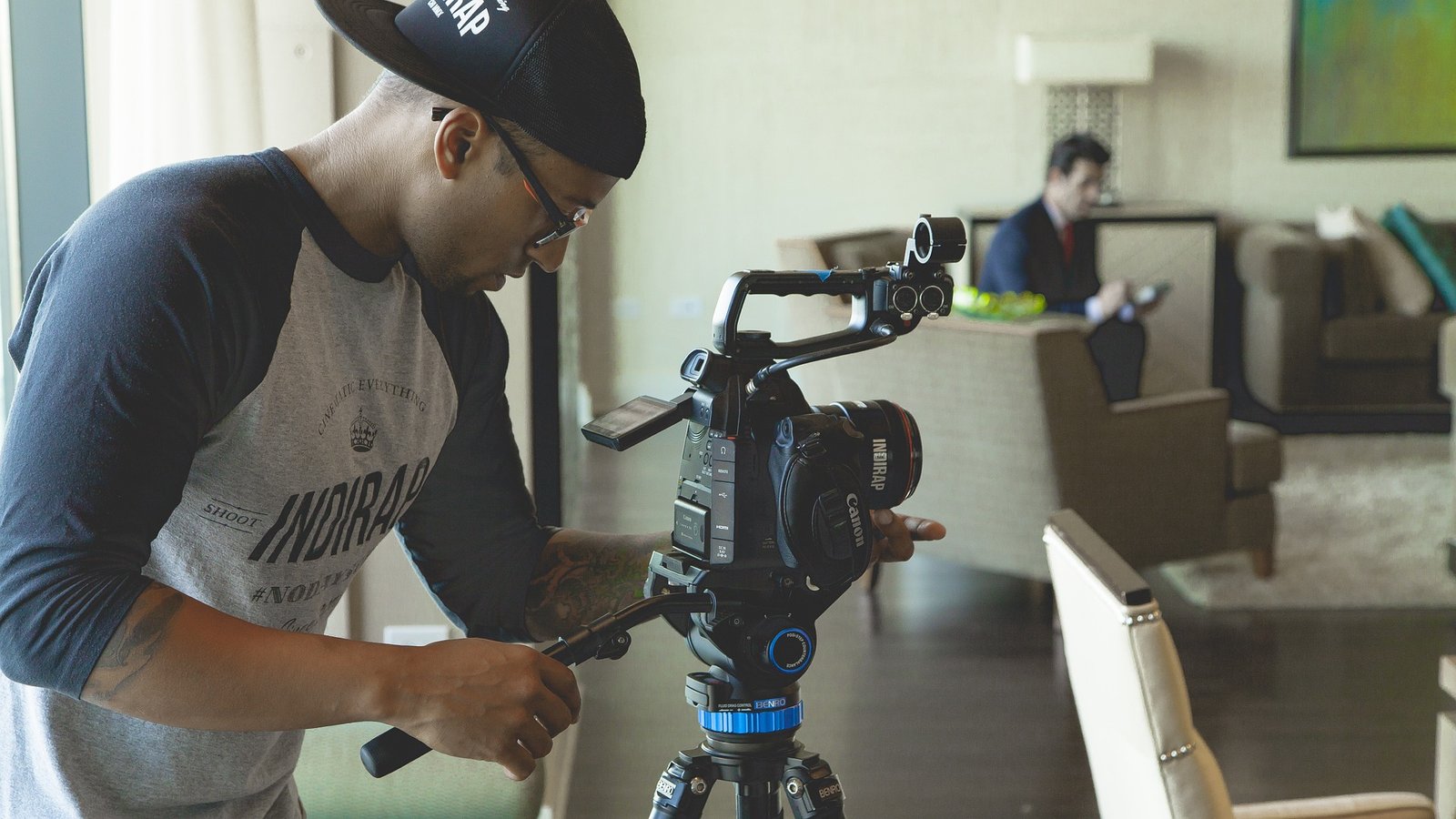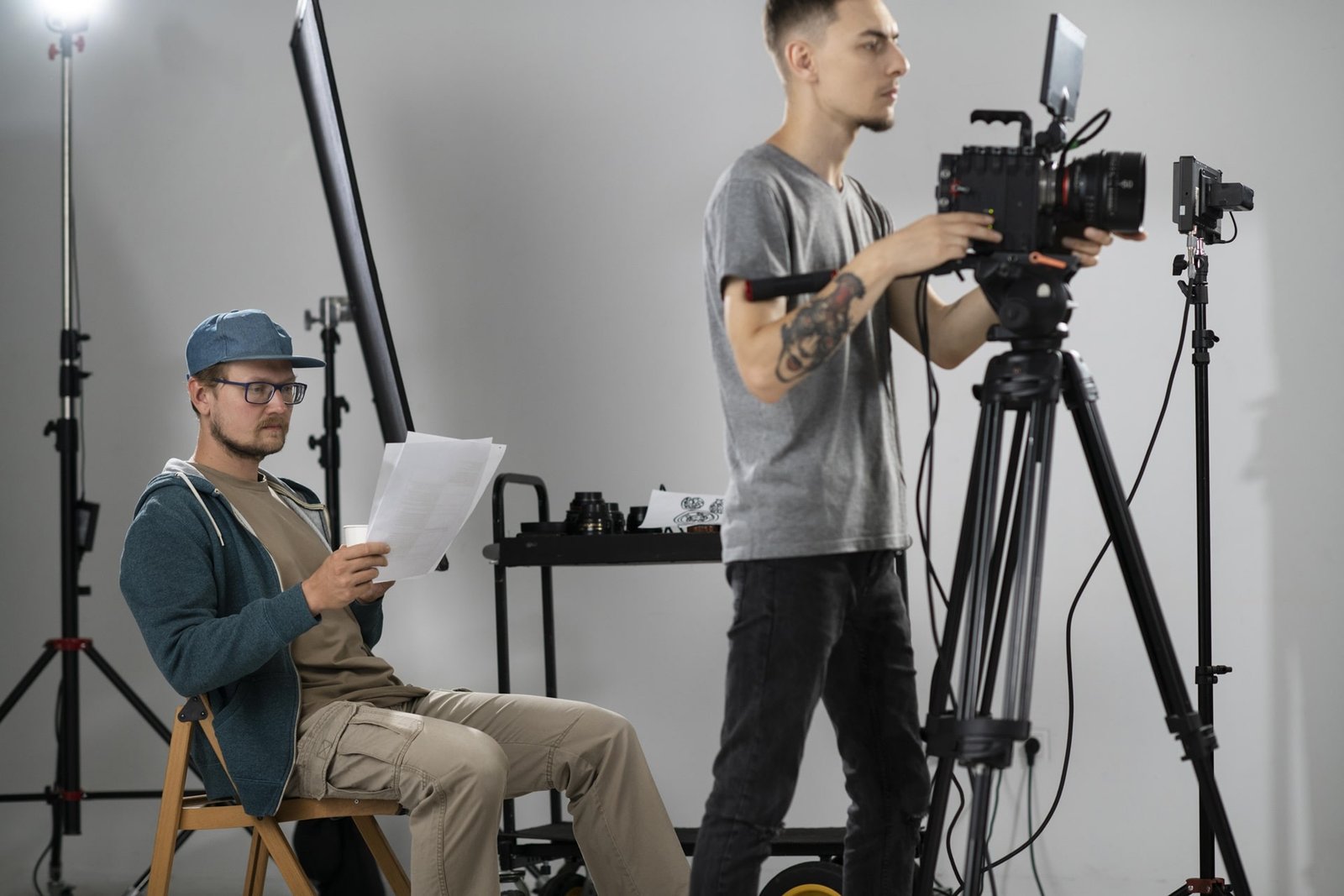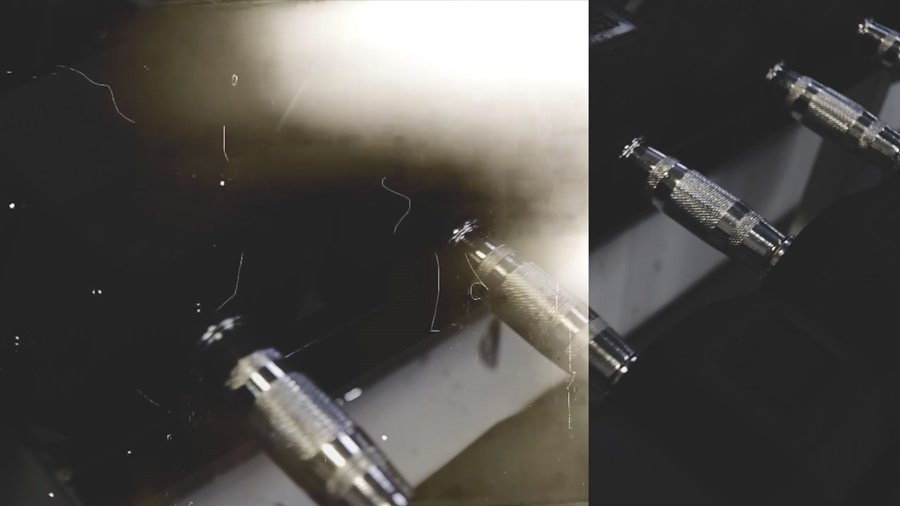To create a film, you do not need much: big desire, understanding of the fundamentals of filmmaking, at least a little money, courage, intelligence and luck. So you set a goal – but where to start?
Step One – Idea
If you do not have an idea, then you’d better not start. Because in this case you probably have the wrong motivation. You, most likely, want to make a film to participate in a film festival, or to become rich/popular, or you think that by this way the girls will love you more. All these reasons are just false symptoms of that your place is among the cinematographers. Cinema is a form of art, and you should think with the heart, not with the head.
Step Two – Script
If you have an idea or several of them and there is no script, you just need to choose one – the most favorite, the most exciting (first of all, for you). After you swear allegiance to your brilliant idea, you have two options – to contact an experienced scriptwriter and invite him to collaborate or learn how to create scripts by yourself.
A good scenario is, first of all, an interesting scenario, in other words, a page-turner. You can study the art of creating interesting scenarios (or storytelling). Secrets lie in such elements as the structure (plot of the history), intriguing characters (characters that are quite outstanding, but you can associate oneself with them), catchy, but trustworthy dialogues (capacious nontrivial speeches written in a manner peculiar to characters) and peripeteia (unforeseen events).
Working with a co-author has its pros and cons. Starting the cooperation you not only begin a relationship with a stranger, you also “give birth” to a common child. Therefore, to avoid all possible situations that will prevent your film from seeing the light, you need to foresee all negative scenarios of your relationship and write a real essay on the topic “what happens to the script, if we quarrel with a co-author?”. Also it is necessary to anticipate the most positive scenarios – what if someone would buy your script, what about your shares and so on… And not to quarrel at the most inopportune moment and thereby not to veto your common child.
Of course, there are fewer problems when you are working on the script alone. To create a scenario, in addition to knowledge and skills, you need to have patience and the ability to objectively look at the product of one’s imagination. Your script is ready when he grabs the reader’s attention and takes him to the world of characters you’ve created… And now you look at the eyes of the reader that are full of annoyance that the story is over.
Step Three – Preproduction
So your script is ready and you are willing to spend several months of your life to turn it into a film. If suddenly you received a legacy, won the lottery, sold your car and now you have a certain amount of money to create a film… Then this is your budget! And you have to do everything possible to stay within it including the shooting of the film and its editing. That means that your main task is to correctly allocate funds during each stage of creating the film.
If you do not have enough finances to create a film, then before you start a fundraising campaign on the crowded platform, you have to understand how much money you need. What is the minimum budget for your film? To do this, you will have to start with planning, that is, independently initiate the preproduction of your picture.
What is planning and preproduction? Preproduction is the stage of work on a film that is also called “preparatory”. It begins after the script is finished and ends when the production period starts. Preproduction is a very important process in the film industry. If you take into account everything from the upcoming shooting period, then filming process would be calm.
Although it should be noted that the filming process is never calm :). But you can avoid the hell if you use your imagination together with analytical thinking. The second director works with planning, he is also called the “scheduler”. Planning should be coordinated with the executive producer. When you are shooting a film having a small budget, you are both the director, the producer, and the second director.
What does planning consist of? You need to break your script into lists: a list of characters, a list of objects, a list of costumes, a list of props, etc. In addition, we need to analyze the script for the number of different days when your story develops.
Step Four – Actors, locations and crew
Now you are ready to start looking for everything you need. Start by placing an ad on social networks that you are looking for actors. Briefly describe the project, honestly tell that the budget of the film is low, and write down your email. Let the resumes and photos of those who wish to be in your film start to flow to your inbox. Among these photos you will select the pool of actors you will call for the casting.
Then search for locations. Check out all the rooms where you can film a few days for free: apartments, offices, villas and garages of your friends and acquaintances. Now that you have found the interior locations for shooting, start searching for exterior ones – streets, roadways, roofs, etc. The most practical way is to find exterior locations near the interior ones and to save you time for moving from one object to another. If you have restaurant scenes in a movie, try to negotiate the closing of the necessary premises for shooting at a reasonable price. These amounts should be multiplied by the number of days that you spend on this location. Here is your first deal – the fee for using locations.
To begin with you need to bring an assistant into your team – a person who will help you with the organization of preparatory and production periods. It can be your loyal friend or a novice producer (a student of the faculty of film producing). You probably will work with a minimal crew, so your assistant will perform the functions of an executive producer and will help you in everything – from location inspection and casting to organizing the processes on the set.
Do not ask the cast members to work for you or your film for free. Such interaction is extremely unreliable. Assess how much time you will need your assistant, and pay for his work according to the minimum monthly salary that he can accept. In the same way, calculate the compensation of time and work for the rest of the crew. And here is the second inevitable expense – the fees for the film crew. To agree on gratuitous participation in the filming process can be painless only with the actors. Because for the actor the most important factor is an interesting role. Besides the direct ones, it also has indirect long-playing dividends.
Give preference to multifunctional specialists. If the production operator insists on sitting in front of the monitor and giving instructions to the operators, it’s not your expert. You need a cameraman who controls the camera and is able to set the minimum number of lights that will be on your site. (to be continued…)
Tuts and Reviews is a photography & filmmaking resource site. We find and feature freebies that we have found around the web from trusted sites and photographers as well as video or film creators. Make sure to browse our listing in the Freebies section! We also create our own digital products (free & paid) which you can check in our shop.








